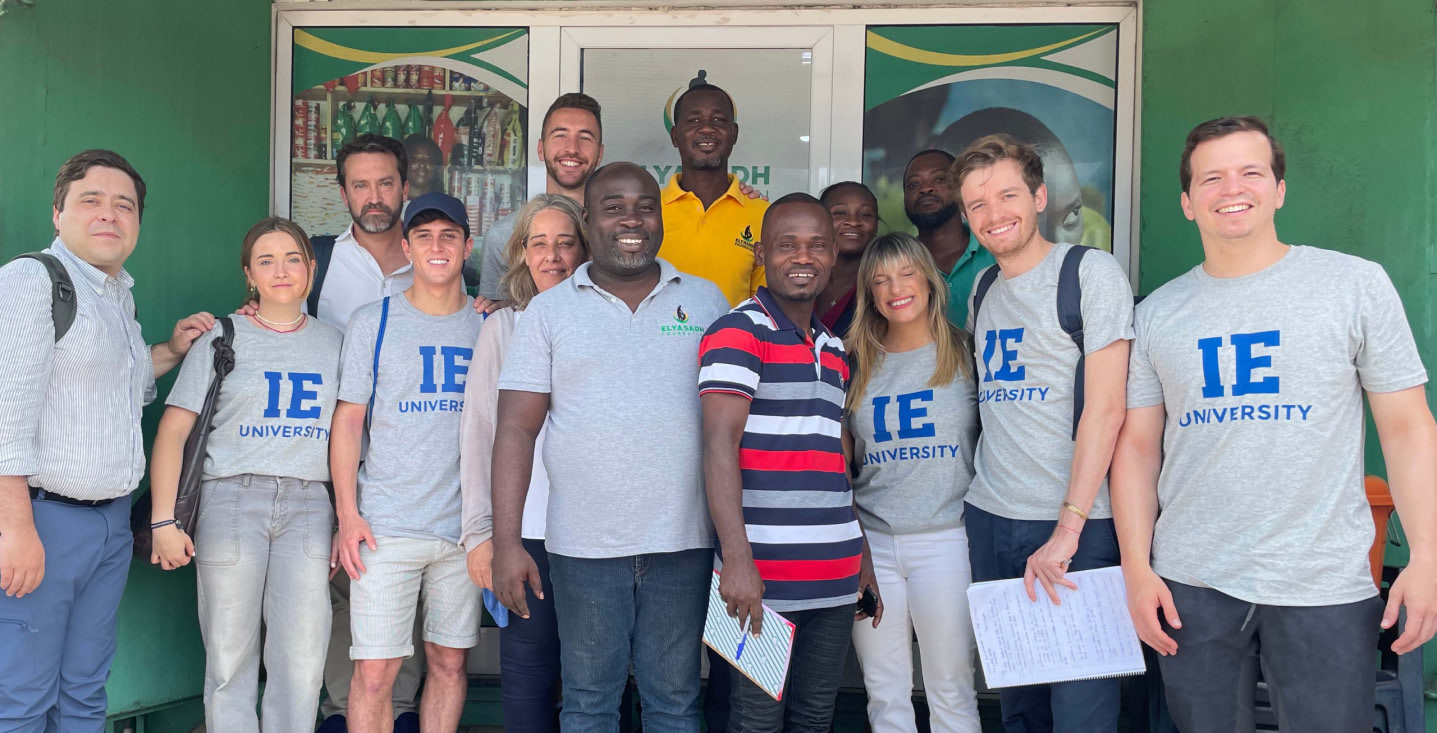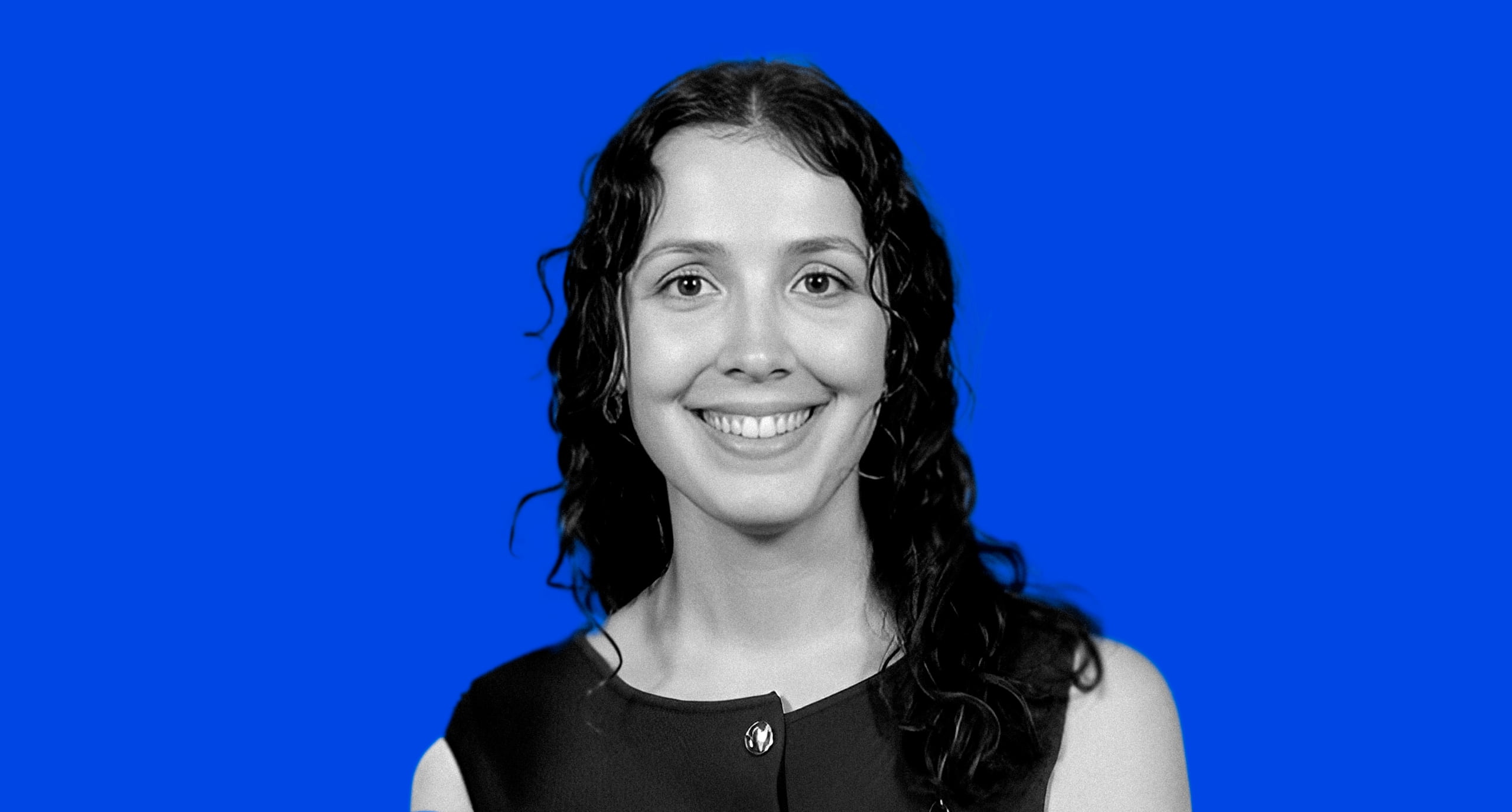10/11/2021
We had a conversation with professor and mentor Mélanie Riofrio Piché, Secretary General of the Madrid International Arbitration Center, about how IE University’s Master of Laws (LL.M.) prepares future arbitrators to meet today’s rising need for international dispute resolution.
Mélanie Riofrio Piché is the Secretary General of the Madrid International Arbitration Center (MIAC), and we are privileged to count her among our professors and mentors at IE Law School, where she teaches classes in the Master of Laws (LL.M.) specialization in International Dispute Resolution.
Fluent in English, Spanish and French, and possessing an international background herself, Mélanie has always sought to delve into the core of international dispute resolution—from the very beginning of her professional career doing legal internships in Paris and The Hague, to her sector-leading position at the MIAC today.
“What I would like to pass on to my mentees is a fire in the belly—this deep-seated personal drive and ambition to accomplish and achieve their goals,” says Mélanie.
That drive is something she undoubtedly possesses herself. Mélanie has held various roles throughout her career, both as a practicing arbitrator and as a professor of arbitration at the university level. We had the chance to interview her about the need for international dispute resolution in today’s world and to ask her advice for those just entering the field.
A new and expanding sector
“I think we are witnessing a ‘professionalization’ of international arbitrators,” says Mélanie.
She tells us that, in the past, “being an ‘arbitrator’ was an occupation that was combined with other legal activities, such as being a lawyer, a university professor, or even an engineer or an accountant.”
But, as the world becomes increasingly globalized, this is no longer the case. “The arbitral profession has changed considerably in the last few years. The increase in the number of arbitrators and arbitration boutiques is a strong signal of how arbitrators are approaching this role in a more full-time capacity.” And the Master of Laws with a specialization in International Dispute Resolution prepares future professionals to flourish in this ever-developing field.
Why International Dispute Resolution?
Madrid is home to some of the industries that are most prone to disputes—construction, energy, infrastructure, communications and finance—and as globalization expands, many of these disputes involve multiple jurisdictions in various countries.
“Disputes will inevitably arise from those commercial relationships. This is why there is an increasing need for professionals who are prepared to resolve these disputes in a time- and cost-efficient manner.” Mélanie points out that today’s world needs arbitrators who are adequately prepared with a cross-border perspective, “but most of all, professionals that understand the importance of preserving those business relationships.”
Advice for aspiring international arbitrators
“I think a successful career is based on hard work, resilience and perseverance. There is not a single path to accomplish our goals,” says Mélanie. “We will make mistakes. We will have to learn and capitalize on past experiences.”
As for tips for those about to embark on their professional journey, she highlights two important skills.
“The first is a good business sense. You can’t make sound decisions if you don’t understand international business and how it works.”
“The second is the mastery of the art of persuasion. The parties have to persuade the arbitrator, but the arbitrator also has to convince the parties that his or her decision is reasonable. It is one thing to have strong arguments and a solid legal basis, and a whole different thing to convey those arguments in a persuasive manner.”
Why IE Law School?
“The LL.M. with the specialization in IDR at IE Law School will help you to enhance your dispute-resolution skills while learning to strategically handle cross-border litigation.” –Mélanie Riofrio Piché
International Dispute Resolution is one of the three specializations offered within IE Law School’s Master of Laws (LL.M.), alongside International Business Law and Intellectual Property and Technology Law.
Mélanie Riofrio Piché is one of our many highly experienced faculty members at IE Law School who are actively working at the forefront of their field. At IE Law School, our faculty does not have just head-knowledge—they are always contemporary professionals at the vanguard of their respective areas of law.
From day one, the faculty at IE Law School will accompany you as you develop a solid foundation in legal concepts and put them into practice. Right from the start, take advantage of opportunities such as the most renowned moot court competitions in Europe; training programs with Sidley Austin LLP, White & Case and Herbert Smith Freehills; the IE Legal Clinic; and an internship and mentoring program with the MIAC itself, where Mélanie is Secretary General.
If you’re no stranger to that “fire in the belly” sensation that Mélanie talks about, perhaps you’re ready to take that leap toward the academic knowledge and hands-on experience that you will gain as part of your International Dispute Resolution specialization in IE Law School’s Master of Laws.








